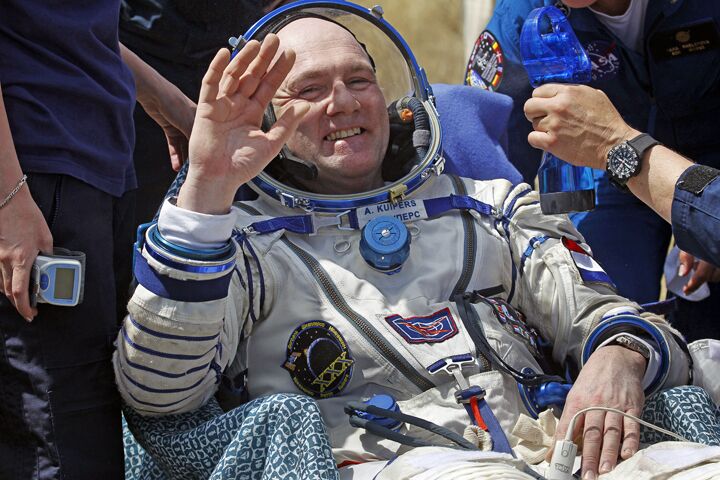
NASA Sits on the Sidelines
For over 50 years the U.S. space program dominated space exploration while the envious eyes of the world looked on. Not so today. America’s astronauts, space scientists and engineers are watching other nations join together and blast into space.
nasa is not included.
Currently, Russia and the European Space Agency, or esa, are pursuing a joint venture to develop unmanned rovers intended to eventually retrieve soil samples from Mars. Together they are also soliciting to have other nations join them on future lunar missions.
In June, China successfully concluded its first manned docking of the Shenzhou-9 spacecraft in orbit as part of its well-organized, heavily funded program to establish itself as a major power in space. China plans to create its own orbiting laboratory.
China has worked diligently to greatly improve its booster rockets and is working just as diligently to become a leader in the production of communications, scientific and military satellites.
India, Japan and Brazil are working separately to develop world-class boosters. Iran has already launched three satellites into orbit and is committed to sending a human into orbit by the end of the decade.
Even though nasa officials still highly praise the importance of international ventures, the Wall Street Journal recently reported that American scientists and government officials no longer dominate how and when international partnerships are created.
“It is much harder for the U.S. to maintain the lead it has enjoyed in space over the years,” particularly in light of the “extraordinary competition coming from Europe and Asia,” according to Peter Nesgos, a veteran aerospace and communications lawyer in the New York office of Milbank, Tweed, Hadley and McCloy.
nasa’s problems run much deeper than foreign competition though. According to experts on both sides of the Atlantic, current nasa leadership is ineffective in leading or influencing other cross-border initiatives. Why? Severe budget cuts and political pressure from Washington, D.C., has forced the agency to promote independent rather than cooperative ventures.
The shift is evident “not only on technical issues, but also in the political arena,” says Elliot Pulham, chief executive of the Space Foundation, a think tank, education and industry advocacy group based in Colorado Springs. Traditional U.S. allies “are not seeing us establish the agenda and leadership we once had,” the wsj also reported.
nasa’s manned-exploration goal for the next two decades is to land American astronauts on an asteroid. That goal hasn’t gathered international consensus. The countries participating in the international space station prefer the goal of making a return trip to the moon.
Early in 2012, nasa and the White House shocked and angered Europe’s space establishment by abruptly abandoning what had been a showcase, multibillion-dollar joint effort to build and launch next-generation rovers to look for signs of Martian life.
The U.S. argued it could not afford to continue its part of the project. Yet, U.S. scientists and lawmakers are frustrated over the negative consequences. The wsj reported that Rep. Steven Palazzo, a Mississippi Republican who chairs a House science subcommittee overseeing nasa, is among those pushing to reverse proposed White House funding cuts for robotic missions to Mars and elsewhere. As a result of the controversial decision on developing the Mars rovers, Palazzo has warned that nasa risks being “viewed by our international partners as an unreliable, schizophrenic agency.”
Other trends affecting nasa’s diminishing global influence are the steady growth and success of space programs based elsewhere. In 2011, China launched more rockets than the U.S. Besides China, more than 50 nations have some space capabilities.
As America’s space program falls further into decline, it is important to recognize the spin-off technologies that our society has enjoyed over the past five decades. nasa has contributed to the development of medical devices such as infrared ear thermometers and artificial limbs. For our transportation systems, we have improved anti-icing systems for our aircraft and better radial tires for our cars. In the home area, we have enriched baby food, cordless vacuums and the process making possible freeze-dried foods.
These are just a few of the things; there are countless more.
Maybe more important than anything, nasa has opened up our view of the incredible limitless universe, telling us that there exists something greater than ourselves.
TheTrumpet.com has heavily chronicled the decline of the U.S. space program. Be sure to read the two articles “President Cancels Space Program” and “The End of the Space Shuttle and America’s Greatness” along with other articles on the fast-paced trends in the global race to control space from the Trumpet archive.
